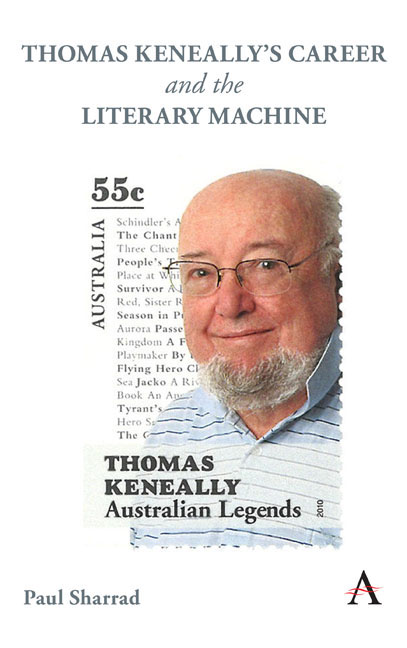Chapter Four - Afterwards
Published online by Cambridge University Press: 04 October 2019
Summary
The two years following the Booker win broke Keneally's book-a-year pattern. He had to go into hospital in June 1983 and considered ‘toss[ing] it all in’, but habit, the love of a good story and an ingrained sense of vocation kept him going. He saw Schindler as the milestone that marked the end of his youth and was worried that he would be judged – as he had been previously in relation to Bring Larks and Heroes – incapable of matching a oneoff hit. His sense of the writer's vocation was now being centred more on craftsmanship than artistry, and his ongoing interest in internal moral wrestling was starting to broaden to take in social problems of a global nature.
In creating Schindler's Ark, the author had encountered the depths of human despair and malevolence but had emerged inspired by Poldek Pfefferberg's boundless enthusiasm and Schindler's unlikely goodness. In 1985 he asserted: ‘I've changed a great deal since those early books. I approve of affirmativeness. I feel relatively bullish about mankind.’ Writing a book was ‘an almost automatic response of hope in the future’. It was also an activity that the author could be more objective about: ‘I take the books less seriously as a weathercock of how I should feel. And technically I find them easier to write. This doesn't mean that they're better. It just means that I […] have far less of an impulse to fall away into depression or contemplate suicide in the middle of them.’ New techniques were also available to enable easier writing. Keneally began using a hand-held recorder in 1979 while composing Confederates. He would dictate his way through difficult spots in a story during walks on the beach, a method that injected more of the author's orality into the text. He admitted, ‘I've got a tendency to have favourite words’, and their repetition becomes more noticeable in the post-eighties works. Recording text was not without problems: when he was working in California, secretaries had to deal with his accent, vocabulary and cultural references, resulting in some quite garbled transcription. So the speed gained at the start of the creative process was lost in checking typescript.
- Type
- Chapter
- Information
- Thomas Keneally's Career and the Literary Machine , pp. 121 - 150Publisher: Anthem PressPrint publication year: 2019

